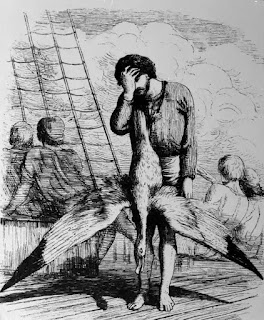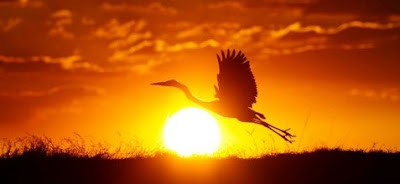"Thanksgiving." It's a single word designating in the U.S. a single-day holiday in November. But that word "Thanksgiving" can be broken apart into two words that point forward to another U.S. holiday roughly a month later: "Thanks" is the theme of Thanksgiving Day, and "Giving" is the theme of the gift-giving day of Christmas.
Those two words might lead us to meditate upon intangible spiritual values, but unfortunately, in that one-month period between the two holidays, we are deluged with mail-order catalogs, advertisements, store displays, and news stories that emphasize spending money. The news media judge the very day after Thanksgiving ("Black Friday") as being a success if enough money is spent, and they call the weeks before Christmas not "Advent" but "the holiday shopping season." The innovation of Giving Tuesday puts only a slight dent in the steamroller of consumerism heading toward Xmas.Inflation, especially when it is rapid, understandably makes people more conscious of prices. But over a century ago, the perceptive Oscar Wilde cautioned people that knowing "the price of everything and the value of nothing" is a cynical way to live. Several decades ago, a handful of renegade economists tried to remind people that how the news media report economic statistics can be misleading. Take for example how the GNP (Gross National Product) is usually treated as an indicator of progress if it is growing. However, that indicator even goes up when a people are in car accidents, because hospital supplies and car parts are produced. In contrast, the GNP indicator is untouched when a person uses knitting material they already had stored to create a lovely gift for a family member or friend. Those are examples of why Donella Meadows writes:
The GNP is obviously not a measure of progress....
It is indiscriminate. It lumps together joys and sorrows, triumphs and disasters,
profundities and trivializes, everything that costs money and nothing that doesn't.
Perhaps during the one-month period between Thanksgiving and Christmas, besides making a shopping list, we might pause to create a mental list of intangibles we are able to give. One starting place might be to think back upon what things other than purchased products we have been blessed with having been able to give to others. I would put on my list my having been able to be a teacher about topics related to religion, spirituality, Nature, and science. (For a decade, this website has served as one avenue for that teaching.)
The reverse side of giving is getting. During the month near Christmas -- and the other winter festivities of Hannukah and Kwanzaa -- we might also reflect upon the intangibles we receive. Of course, we are grateful for the love that binds our lives with others. But are there things we have received that are more specific to our individual identities? Here again (perhaps because I am now in my 70's) I look to the past. And I think that one of the greatest gifts my parents and teachers gave me were those values that gave me a habit of looking beneath the surface of things -- an eye for the intangibles, the immeasurables, that are crucial to spirituality. Those intangibles are there, whether or not we notice them.In addition to such reflections upon our lives during the weeks near Christmas Day, might we perhaps shift our reading to include something different than our usual routine? Something that would be enhancing? And during those weeks, might we turn our attention to the changing aspects of Nature as the year moves into winter?
~ ~ ~
Is there something you are reading during the weeks near Christmas that you would like to tell others about? Have you noticed something in Nature during this period that has invigorated you?
(The quotation by Oscar Wilde is from his 1892 Lady Windermere's Fan,
as cited in Familiar Quotations, 16th edition, edited by John Bartlett, p. 566 #23.)
(The quotation by Donella H. Meadows is from her book The Global Citizen, © 1991, p. 232.)





















.jpg)